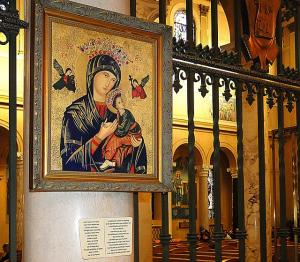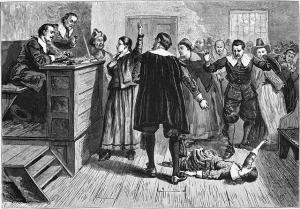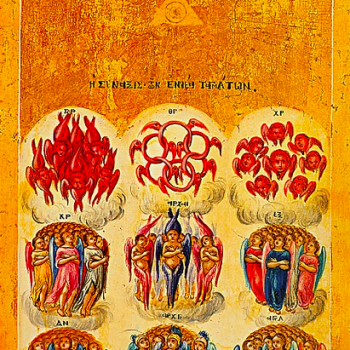Another Day, Another Scandal
I said at the beginning of my last post that Catholic media was abuzz with responses to Traditionis Custodes. Unluckily for me, I wrote that piece on a lazy enough schedule that by the time I published it, we’d moved on to the next scandal: the misconduct, resignation, and exposure of one Msgr. Jeffrey Burrill, former General Secretary of the USCCB. The exposure was at the hands of The Pillar, a Catholic periodical run by two canon lawyers (Dr. Ed Condon and J. D. Flynn); reactions have been mixed. Some have decried the piece for breaching Msgr. Burrill’s privacy and lambasted the article itself as homophobic, while others have praised The Pillar for exposing his hypocrisy and helping purge the Church of corruption.
This is going to be a long one, ladies and thems. Let’s start with some hard facts, shall we?

What Happened When
According to The Pillar’s source, Msgr. Burrill downloaded and began to use Grindr, a gay hookup app, not later than 2018. He visited multiple private residences, both at home and while traveling, as well as at least one gay bathhouse in Las Vegas. This pattern of behavior continued until at least 2020. The obvious inference1 is that Burrill was using the app for its intended purpose—i.e., to find male sex partners, in violation of his vows as a priest; given his sensitive leadership position, this would also make him a possible blackmail target, though as far as I know there is no evidence that this actually occurred.. There is also no evidence that he contacted minors, through Grindr or by other means, at any time.
At some point, a person who remains anonymous succeeded in harvesting identifying data about him (this is the aspect of the story I understand least, not being a tech guy, so forgive me if I’m a little vague). They offered to sell this data to The Pillar, which purchased and analyzed the information. They then approached the USCCB and asked to discuss it with Msgr. Burrill’s superior. They agreed; Burrill, quite rightly, resigned, and then the USCCB postponed the meeting (perhaps indefinitely—I don’t know). At this point, The Pillar published the story, not only naming Burrill but including several paragraphs about the ways Grindr fails to protect minors from sexual contact with adults.
And scene. Now then: was this good or bad?
A Case for The Pillar’s Decision
Catholics are angry. They have every reason to be. The USCCB has been letting us down over sexual abuse by clergy, and refusing to take responsibility, for fifty years running. “Getting the rot out” is a very good thing. Like many Catholics, I have no confidence in the USCCB or its individual members, and I have not been shy about that fact for several years now.

And make no mistake, while this may not be a case of abuse, it absolutely is a case of professional misconduct. Burrill should have resigned years ago, not waited until he was caught with his hand in the cookie jar. A priest on Twitter whom I respect shared a little bit about his own experience of living with a priest who was breaking his vows with another consenting adult, and the damage that that dishonesty did to the people around him, the way it warped him. All sins are social; as Donne put it, each one of us is “involved in mankind“. This priest’s behavior would have had social and spiritual consequences even if he had never been found out.
A Bad Case Against The Pillar’s Decision
A lot of reactions on social media have said things like “How would you like to have all your dirty secrets exposed?” or “I guarantee you some of your favorite priests have done the same thing.” Speaking personally, I’d be quite terrified to have my dirty secrets exposed. There’s a reason I usually speak vaguely about being “unchaste,” instead of explicitly describing the porn and fornication that sometimes keep me away from the sacraments for months at a time. That’s a very good reason to have some compassion for Msgr. Burrill; a topic I will return to later on.
But that isn’t a good reason to defend clerical misconduct. We rightly hold priests to a higher standard; Pope Francis has said priests who find themselves unable to meet the challenge of celibacy would do better to resign than to continue in ministry. And as long as we’re talking about airing people’s dirty laundry, it bears saying, both Msgr. Burrill and the Church at large are extremely lucky that he wasn’t ever blackmailed. It was a disaster waiting to happen, and thank God it never did happen.

Several people, such as Fr. Aquinas Guilbeau (a professor of moral theology at the Dominican House of Studies), have argued that by publishing the exposé, The Pillar was guilty of detraction. For those who aren’t familiar, detraction is a sin of speaking or writing, related to slander but distinct from it; both harm a person’s reputation, but to be slanderous, the claims at stake must be false. Detraction is publishing true and damaging details about a person, violating their rights to privacy and their good name. Of course, “detraction” and “scandal” were always the bad pretexts put forward for concealing abuse; they were bad pretexts because, with an objective, grave reason, revealing private information about someone can be justified.
A More Serious Case Against The Pillar’s Decision
But that prompts the question: what was the objective, grave reason for publishing this information?
In cases of abuse, whether of children or adults, the rationale is clear. People have a right to protect themselves and their families against predators, which always trumps the predator’s right to privacy. And if Msgr. Burrill were still the USCCB Secretary, the case would be a little murkier but still intelligible; as a blackmail risk, he shouldn’t be holding a sensitive position like that (though all the same, it would be an effort to prevent something that hadn’t actually happened). Or if Burrill had been a popular figure with a following that needed warning, like Ravi Zacharias was, that would also seem like a proportionate reason.
For The Pillar to contact Burrill’s superior privately and inform them of the situation was perfectly right; if a priest is breaking his vows, that is his superior’s business. For Burrill to resign was the correct response. There can be no objection to that, and I haven’t in fact seen anyone object to it.
But at that point, why still publish the exposé? What specific good does this revelation do? It’s protecting no one and nothing; this is not Rear Window. As Simcha Fisher points out, one of the sad jokes about the whole affair is that the really novel thing isn’t a priest turning out to be unchaste, but a bishop doing his job and firing him.
A Bad Case For The Pillar’s Decision

I’ve seen a number of people arguing that any sexual relationship a priest has is inherently abusive: priests are fathers, ergo any sex they have is a sort of spiritual incest. Quite apart from throwing all licitly married priests under the bus, this view has serious problems. Not everyone relates to priests as fathers; I’m reliably informed that several gay men did not even grow up Catholic. And even among Catholics, not every priest-layman relationship has a paternal dynamic—a few friends of mine from college have become or are becoming priests, and I doubt I’ll ever feel like they’re more father than brother. If we’re specifically talking about priests having illicit relationships with people under their pastoral care, then the analogy holds; I’m not sure it does otherwise.
But there’s a different and, to my mind, more serious issue here. Conflating consensual fornication with abuse is bad. I think it comes from an attempt to take the gravity of priestly misconduct seriously; but it doesn’t help, it muddies things. Treating fornication like abuse is excessive, and confusing the two also opens the door to minimizing abuse as no worse than fornication. I’ve been reading and writing about abuse for years now, and Catholics seem to have a real problem recognizing the difference between illicit sex and abusive sex. That doesn’t help anyone. In fact, it’s pretty scary.
Process Matters
The data mining issue is also disquieting. Dawn Eden Goldstein addressed it on Twitter:
No Catholic media outlet has ever attempted on its own to try and convict a priest using this type of data, and—correct me if I’m wrong—I don’t think any mainstream media outlets have used such data either. That Grindr data has been on the market for some time. Why has no media outlet used it to find out which politicians may be cheating on their spouses? … Why is a purportedly Catholic media outlet, run by canon lawyers (who apparently need to reread canon 220), using cellphone data (purchased and analyzed at a cost of thousands of dollars, funded by anonymous donors) in a manner that no other media outlet has ever done?… It seems, somewhere along the way, The Pillar’s wealthy funders made a choice. They had access to canonists and could have used them to accuse priests. Instead, they paid for The Pillar to act as judge and jury. That’s neither the way of the Church nor the way of justice.Nobody wants to see abusive priests remain in ministry. What The Pillar and its anon funders are doing appeals to our natural desire to see bad people rendered harmless. But in fact, such “journalism” sets a terrible precedent. It harms the judicial process—and thus harms victims.
The Ethics of the Source

Our first impression upon reading the article was that someone bought the incriminating data and offered it to The Pillar. This assessment was shored up by an article we read later, which says that CNA, former employer of The Pillar’s J. D. Flynn, had been approached starting in 2018 by someone who had been shopping around incriminating data about clerics. CNA cited ethical concerns in the story, and didn’t accept the data. It clearly knew by some means that The Pillar intended to publish its exposé, and published its own story a few days before.
If The Pillar got a tip that Msgr. Burrill was up to no good, and decided to … buy some data to verify it, that would be slightly sketchy but possibly legitimate … But if, as seems likely, someone came to them with an already-purchased bundle of red hot data about how Burrill spent his weekend, and The Pillar simply verified it and wrote it up, that’s not actual investigative journalism. That’s performing a service for the person who spent the money to make the story happen. This is a huge ethical problem, and I’m alarmed that more people don’t realize it.
The Pillar has been presenting itself as a watchdog journalism site. But if someone else is buying information and feeding it to them, they cannot be considered objective journalists, but instead … partners with their source. Is this what happened? We don’t know, because they don’t say! … They do not name their source, and that’s reasonable. But they don’t make it clear whether they actually even have a source, and if so, what kind of relationship the source has with the story. This is very shaky ethical ground.
To give you an idea of exactly how shaky, the Burrill story has been reported on by Slate, VICE, the Washington Post, and the technology news site Ars Technica, as well as by Catholic sources. As related by Mike Lewis at Where Peter Is, all of these outlets put their hands on a story of a priest caught using Grindr … and decided the more noteworthy side of the story was mining a person’s data to out them.
“You’re Next, F****t!”

Molly Olmstead of Slate … wrote, “There’s little precedent for this kind of tactic in the US. While authorities in other countries have used gay dating and hookup apps—mainly through entrapment with fake accounts—to persecute queer people, the concerns over the app in the US have had more to do with protecting users from other users.” Olmstead spoke to technologist Nat Meysenburg, who told her that this … had been warned about for years by experts. He told her that “it only took a particularly determined group of people with a very specific goal in mind and the time to work through the data.” The danger now, he told her “is that this gets replicated by all kinds of people for all kinds of reasons.”
Was This Really Homophobic?
There is also the issue of the article’s own framing. To be fair, The Pillar says in so many words that it has no evidence that Burrill abused anyone or had any sexual contact with minors, via Grindr or otherwise. To be even fairer, it says this right after citing a Fr. Berg claiming that sexual misconduct forms a slippery slope to abuse—which, if he meant child abuse, is just not true—and right before sharing more than twenty paragraphs about other priests abusing minors and how bad Grindr’s age verification policies are. I am a little shocked not everyone agrees that this sends a message!

Do abusive priests merit reporting? Yes. Are Grindr’s weak age safeguards a serious problem? Yes. But there is no reason to report on those things, at this length, in a piece about Burrill, unless you think they’re relevant to Burrill. Either you think this makes him vulnerable to blackmail—which The Pillar might have meant, but barely mentioned (and even then it was about priests blackmailing minors for porn, not the risk of the monsignor getting blackmailed). Or, you’re implying he’s a pedophile or on his way to becoming one.
This is especially alarming because homosexuality, pedophilia, and sexual abuse are already conflated in the minds of thousands of Catholics. This framing feeds and perpetuates those misconceptions. And those misconceptions do serious damage to LGBTQ people. They get even chaste, orthodox Catholics barred from ministries and refused jobs; they encourage parents to disown LGBTQ children or force them into “conversion therapy.”
Exceeding the Evidence
Adding fuel to the fire, Tony Ginocchio points out:
On Substack … an editor isn’t going to tell you “hey, calling the activity illicit, plus heavily implying that he compromised the response to the abuse scandal, without anything to back it up, is not something we can let you do.” Because all The Pillar had available to report on was location and app data. There are no firsthand accounts—or secondhand or thirdhand accounts—of any of Burrill’s alleged sexual misconduct in the piece. … There are no police reports, because Burrill doesn’t appear to have broken any criminal laws; there’s nothing to suggest that he engaged in any non-consensual sex, no evidence that he ever solicited a sex worker … There’s nothing here that could even suggest that the sex Burrill was allegedly having was unsafe.

I’ve already said it seems like Msgr. Burrill was using Grindr for the same reason anyone else does. But even granting this, still The Pillar goes in excess of the evidence, talking about a pattern of “high-risk behavior” without offering any proof. To be blunt, this is starting to look like tabloid muckraking.
Whither?
I don’t know. I’m angry, and desperately tired of being angry. I’m hurting. I am, when my mind lights on the possible future uses of these reporting techniques, terrified.
And I feel sorry for Msgr. Burrill. Because here’s the thing. There are two possible versions of him, and we don’t know which one he is (or rather, there’s a range of possible versions, and I’m about to describe two possible extremes). Version A: he was a rank hypocrite who lied about his sexuality on his seminary application, never even meant his vows, and didn’t care who he was letting down. He just wanted a good dirty fuck, and was willing to work for the Church to pass the time and keep himself comfy.
Version B: he didn’t fully grasp that he was gay until he’d already been a priest for years. He wanted to serve God and his Church, but had no adult way to process his till-now repressed sexuality and no one safe to talk to about it; a scary experiment turned into an urge, then an addiction. He knew he should resign, but he’d already put all his professional eggs into the clerical basket—he’d end up jobless and homeless in a single stroke.

Which one is he? We don’t know. Only God and, to a lesser extent, Msgr. Burrill know that. Version B is a substantially better man than I am, and Version A is not as much worse as I would like. I have to believe in mercy for him if I’m going to believe in mercy for myself.
Footnotes
1I put it this way because it is technically possible to argue that using the app, even to visit private homes and bathhouses, is not technically proof that he was fornicating; but I mention this only to be logically thorough. I am not seriously advancing the theory that Msgr. Burrill is as pure as driven snow.
2Just to be clear, I mean Msgr. Burrill here, and others like him. I am not saying Fr. Martin is secretly breaking his vows; I know nothing at all about his private behavior, or for that matter about his sexual orientation.












